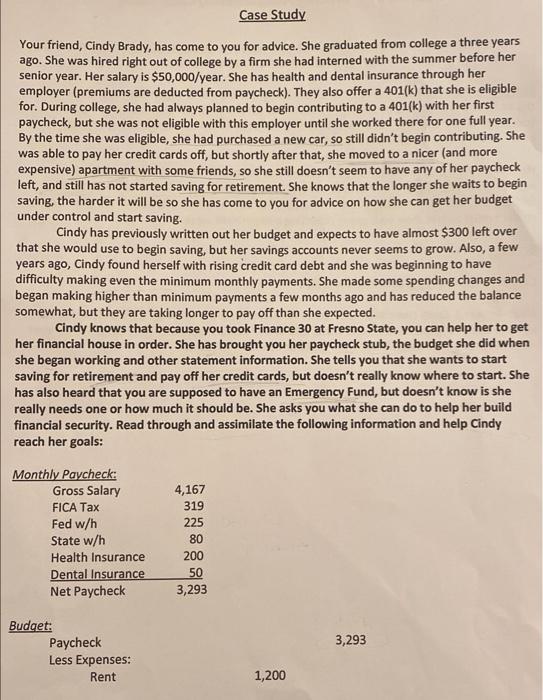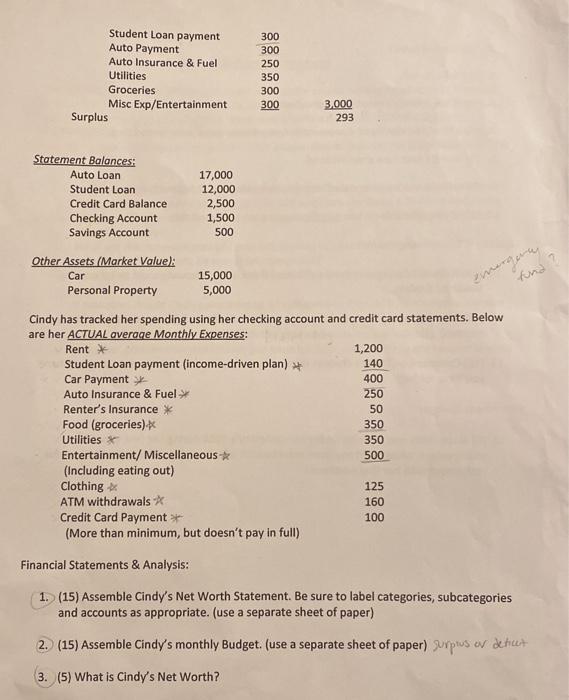Your friend, Cindy Brady, has come to you for advice. She graduated from college a three years ago. She was hired right out of college by a firm she had interned with the summer before her senior year. Her salary is $50,000/ year. She has health and dental insurance through her employer (premiums are deducted from paycheck). They also offer a 401(k) that she is eligible for. During college, she had always planned to begin contributing to a 401(k) with her first paycheck, but she was not eligible with this employer until she worked there for one full year. By the time she was eligible, she had purchased a new car, so still didn't begin contributing. She was able to pay her credit cards off, but shortly after that, she moved to a nicer (and more expensive) apartment with some friends, so she still doesn't seem to have any of her paycheck left, and still has not started saving for retirement. She knows that the longer she waits to begin saving, the harder it will be so she has come to you for advice on how she can get her budget under control and start saving. Cindy has previously written out her budget and expects to have almost $300 left over that she would use to begin saving, but her savings accounts never seems to grow. Also, a few years ago, Cindy found herself with rising credit card debt and she was beginning to have difficulty making even the minimum monthly payments. She made some spending changes and began making higher than minimum payments a few months ago and has reduced the balance somewhat, but they are taking longer to pay off than she expected. Cindy knows that because you took Finance 30 at Fresno State, you can help her to get her financial house in order. She has brought you her paycheck stub, the budget she did when she began working and other statement information. She tells you that she wants to start saving for retirement and pay off her credit cards, but doesn't really know where to start. She has also heard that you are supposed to have an Emergency Fund, but doesn't know is she really needs one or how much it should be. She asks you what she can do to help her build financial security. Read through and assimilate the following information and help Cindy Cindy has tracked her spending using her checking account and credit card statements. Below are her ACTUAL averaae Monthlv ExDenses: Financial Statements \& Analysis: (15) Assemble Cindy's Net Worth Statement. Be sure to label categories, subcategories and accounts as appropriate. (use a separate sheet of paper) (15) Assemble Cindy's monthly Budget. (use a separate sheet of paper) surptus ov detict (3. (5) What is Cindy's Net Worth? 4. (5) Current Ratio? 5. (5) Debt Ratio? 6. (5) What is Cindy's monthly Surplus/Deficit? 7. (5) Is Cindy's monthly rent payment in-line with accepted recommendations? Explain. 8. (5) Savings Rate (use gross income)









